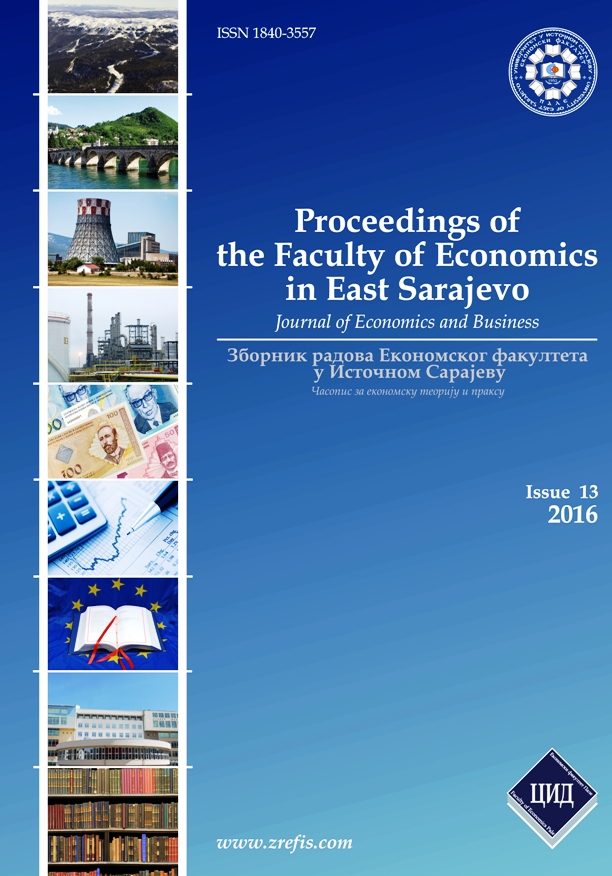SOCIAL DISTORTION EFFECTS IN THE GLOBAL ECONOMY
DOI:
https://doi.org/10.7251/ZREFIS1613053GAbstract
The paper presents the dynamics of inequalities in the distribution of wealth between countries at the global level as well as through an analysis of the Gini coefficient in a selected number of countries. Legality, created as a result of globalization and liberalization, has led to divisions in most societies into two narrow groups, ie. „at the top'' and ''others''. There is no more division into three layers of society – i.e. "top, middle and bottom''. On the other hand, this trend creates distortions in the economic and in the social field. This is expressed through the principle: 'the more money remains concentrated at the top, the bigger decrease in aggregate demand'. Consequently, total demand in the economy is lower than the supply, and it causes the growth of unemployment, which leads to a decline in consumption and demand. This process creates deflationary pressures and causes fluctuations in foreign exchange markets, creating the crisis. To prevent such a scenario and to recover the global economy, it is necessary to make the intervention and do the redistribution of wealth through fiscal and other economic measures.

